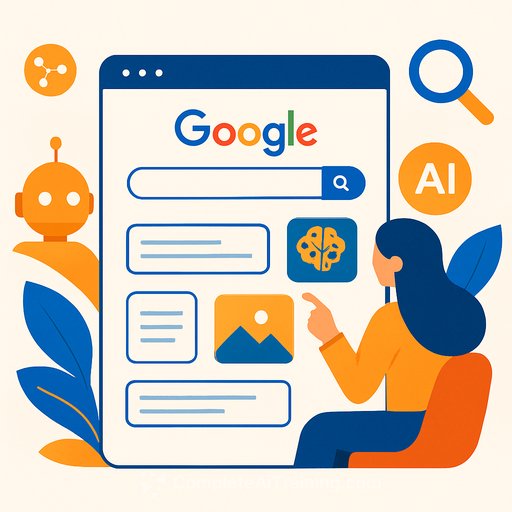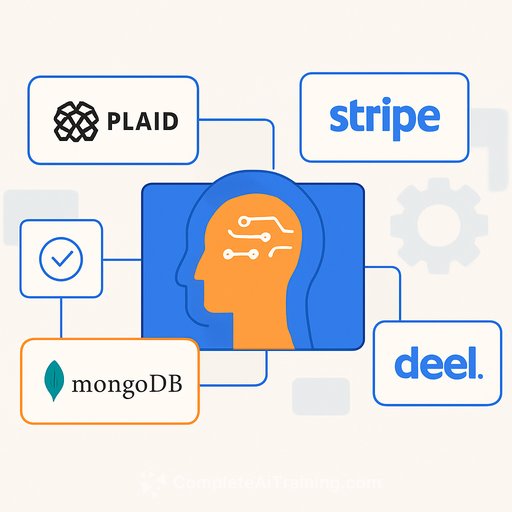Google Launches Web Guide: A Shift to AI-Curated Search Results
Google has maintained a consistent search results format for over 20 years: a ranked list of blue links. Now, with the new experimental feature called Web Guide, the company is testing a different approach. Instead of simply listing websites, Web Guide uses AI to organise and categorise search results, aiming to mirror how humans break down complex topics.
This shift could change how millions discover content online, but its benefits and challenges remain to be seen.
What Is Web Guide?
Web Guide moves away from the classic “10 blue links” by grouping search results into themed sections. Each section targets a different angle of the user’s query and presents curated links accordingly. This method helps users access information more efficiently.
As described by Google’s product team, the AI “intelligently organises the search results page,” making it easier to find relevant pages.
How Does Web Guide Work?
At its core, Web Guide uses a customised version of Google’s Gemini large language model. This AI variant is fine-tuned to understand both search queries and web content deeply.
One key technique involved is the “query fan-out,” where multiple related searches run simultaneously. This broadens the search net and surfaces pages that might be missed with traditional methods.
What Users Can Expect
Web Guide excels at handling open-ended or complex queries. For example, a search like “How to solo travel in Japan?” might be organised into categories such as:
- Comprehensive Guides for Solo Travel in Japan
- Personal Experiences and Tips from Solo Travellers
- Safety and Destination Recommendations
Each category displays a curated set of relevant links with options to see more results in that section.
Current Availability and Future Plans
Web Guide is currently available as an opt-in feature within Google’s Search Labs. Users can activate it and switch easily between the AI-curated Web Guide format and the traditional results.
Google plans a gradual rollout, eventually introducing AI-organised results to other parts of Search, including the “All” tab, based on user feedback and performance.
How Web Guide Differs from AI Mode
Both Web Guide and AI Mode leverage Google’s Gemini AI, but they serve different functions:
- Web Guide: Focuses on organising how results appear, maintaining the traditional structure but adding thematic categorisation.
- AI Mode: Generates conversational AI responses that synthesise information directly into answers.
This distinction means Web Guide enhances result presentation, while AI Mode changes the nature of the answers themselves.
Implications for Marketers and SEO
Web Guide introduces fresh challenges and opportunities for digital marketers. AI-driven categorisation might reward content that addresses specific aspects of a query over traditional keyword optimisation.
High-quality content that previously struggled to rank could gain visibility if it fits clearly into one of the AI-generated categories.
However, this also raises concerns about how traffic might shift between websites and whether certain content types could be favoured disproportionately.
Concerns Around Algorithmic Control
Google’s AI decides which content belongs in each category, potentially influencing what users see and limiting exposure to diverse viewpoints on complex subjects.
As an experimental feature, Web Guide’s future depends on user adoption and feedback. Past experiments in Google Search Labs have shown that not all new features reach full deployment.
Marketing Tech Reality Check
For years, marketers have focused on optimising for Google’s traditional ranking algorithms. Web Guide changes the rules by adding an opaque layer of AI categorisation.
This black-box approach makes it harder to predict how content will be placed, complicating SEO strategies that have worked for decades.
Google’s cautious rollout reflects the uncertainty. Businesses should be wary of relying heavily on Web Guide before it proves stable and widely adopted.
Additionally, as Google’s AI gains more control over interpreting user intent, it effectively becomes a gatekeeper for which content gains prominence. This might benefit larger publishers with resources to optimise for AI systems, while smaller sites could face challenges.
Final Thoughts for Marketers
Web Guide signals a notable change in search result presentation, with potential benefits in content discovery but also new complexities for SEO and traffic management.
Marketers should monitor its development and adapt strategies accordingly, paying close attention to transparency in AI categorisation and user feedback.
For those interested in staying ahead of AI trends in marketing, exploring AI-focused courses and training could provide a competitive edge. Consider checking out Complete AI Training for courses on AI tools and strategies relevant to marketing professionals.
Your membership also unlocks:






